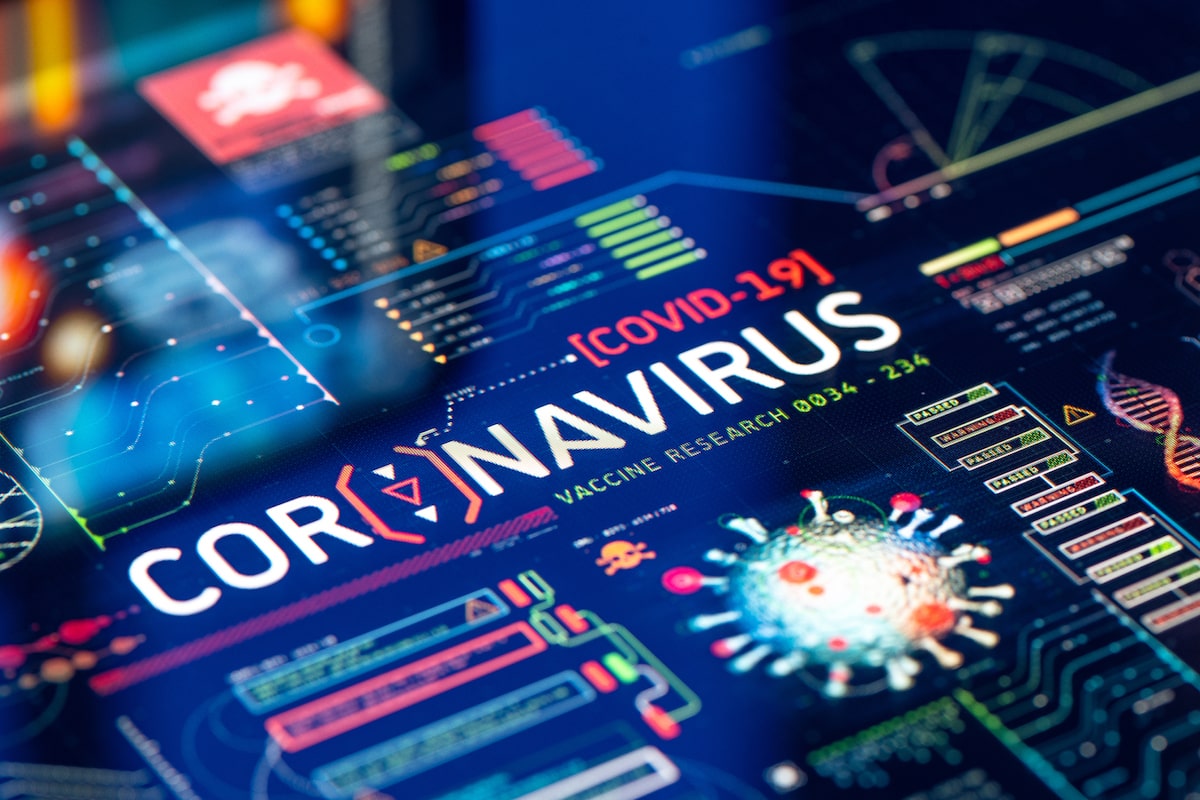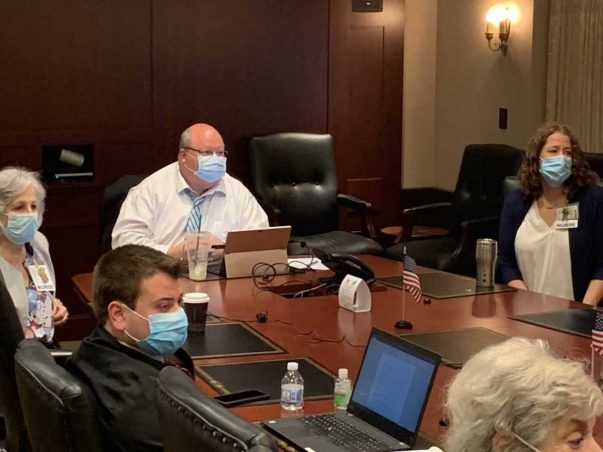<< Back
How Incident Command Teams Shaped COVID-19 Hospital Response

June 02, 2020
The COVID-19 threat that gripped the world left most healthcare systems across the United States little time to prepare for a pandemic surge unprecedented in modern times.
How did Hartford HealthCare manage it? Incident Command teams throughout the system learned, adapted and strategized to create and implement plans for patient intake, drive-through testing, distribution of personal protective equipment and so much more. The challenge was providing the best possible care to patients while keeping staff and visitors safe.
A 25-member Hartford Hospital team, working together on emergency preparation for more than a year, traveled in March 2019 to Anniston, Ala., to train at the Federal Emergency Management Agency’s (FEMA) Center for Domestic Preparedness. There, they learned practices and techniques they adapted to the COVID-19 pandemic.
“After the training at the Center for Domestic Preparedness, we continued to meet every Wednesday,” said Nursing Director Maria Tackett. “We reviewed disaster responses and brought in speakers to discuss topics like supply-chain management, fire safety and infection control.”
The team’s drills were tested last October when a vintage aircraft crashed at Bradley International Airport, with multiple patients taken to Hartford Hospital.
“It was a real-life opportunity to put our skills to use,” says Tackett. “We were in place and didn’t miss a beat in our response. We were all familiar with each other when the situation unfolded.”
 The command staff rotates roles weekly. That movement within the team provides experience, training and flexibility within the group. Some of the roles include incident commander, public information, safety officer, liaison who interacts with all responding agencies, operations section chief, planning, logistics, finance and medical technical section chiefs. During the pandemic, the group has met formally twice a day.
The command staff rotates roles weekly. That movement within the team provides experience, training and flexibility within the group. Some of the roles include incident commander, public information, safety officer, liaison who interacts with all responding agencies, operations section chief, planning, logistics, finance and medical technical section chiefs. During the pandemic, the group has met formally twice a day.
“The objective is to manage the situation while making sure hospital activities continue smoothly,” says Dave Fichandler, Director of Initiative Integration. “We work to contain the situation, ensure safety and manage capacity.”
Fichandler compiles the data distributed every day, which includes how many patients went home, how many passed away, what physical locations patients are located in the hospital and COVID numbers in the hospital, system and state.
“The daily playbook tells us things like how many ventilators are in use and the status of nursing homes, critical care beds and supply and staffing needs,” he says. “This information gives us a pulse for the day, and allows us to track trends.”
Emergency Manager Patrick LaBuff started at Hartford Hospital in March, walking straight into the Emergency Operations Center as a new colleague.
“The Incident Command Team at Hartford Hospital is extremely progressive and works very well together,” he says. “We have well-established partnerships inside and out, within the system and external agencies.”
“Our incident command teams are critical in our response in emergency situations, both short and long-term like this unprecedented pandemic,” said Patrick Turek, Hartford HealthCare System Director of Emergency Management. “These teams have spent countless hours preparing — training in both simulated and live situations — to be ready for something as complex and far reaching as the COVID-19 crisis. I’m so proud of their ability to manage day-to-day operations, coordinate resources across our system and work directly with community partners to ensure that care was never interrupted during these difficult times.”
For Maria Tackett, teamwork and mutual respect is what makes the group so successful.
“Each person comes with their own strengths and expertise and together there is a lot of synergy,” she says. “We are a disciplined, focused team. We get along, always with our eyes on the objective and mission.”
Heading into the summer and whatever the future may bring, LaBuff is confident in the group.
“I’d like to see us implement similar trainings, whether remote or in-house, and deepen the bench with more than one team,” he says. “That will allow us to form additional teams and prevent exhaustion. The team is strong, and this is something we can build upon.”
Need to see your doctor? New Patient? For more information about Hartford HealthCare virtual health visits, click here.
Click here to schedule a virtual visit with a Hartford HealthCare-GoHealth Urgent care doctor. Find out more about COVID-19 antibody tests here.
Sign up for our “Coping with COVID” podcast series here.
Stay with Hartford HealthCare for everything you need to know about the coronavirus threat. Click here for information updated daily.
Questions? Call our 24-hour hotline (860.972.8100 or, toll-free, 833.621.0600).